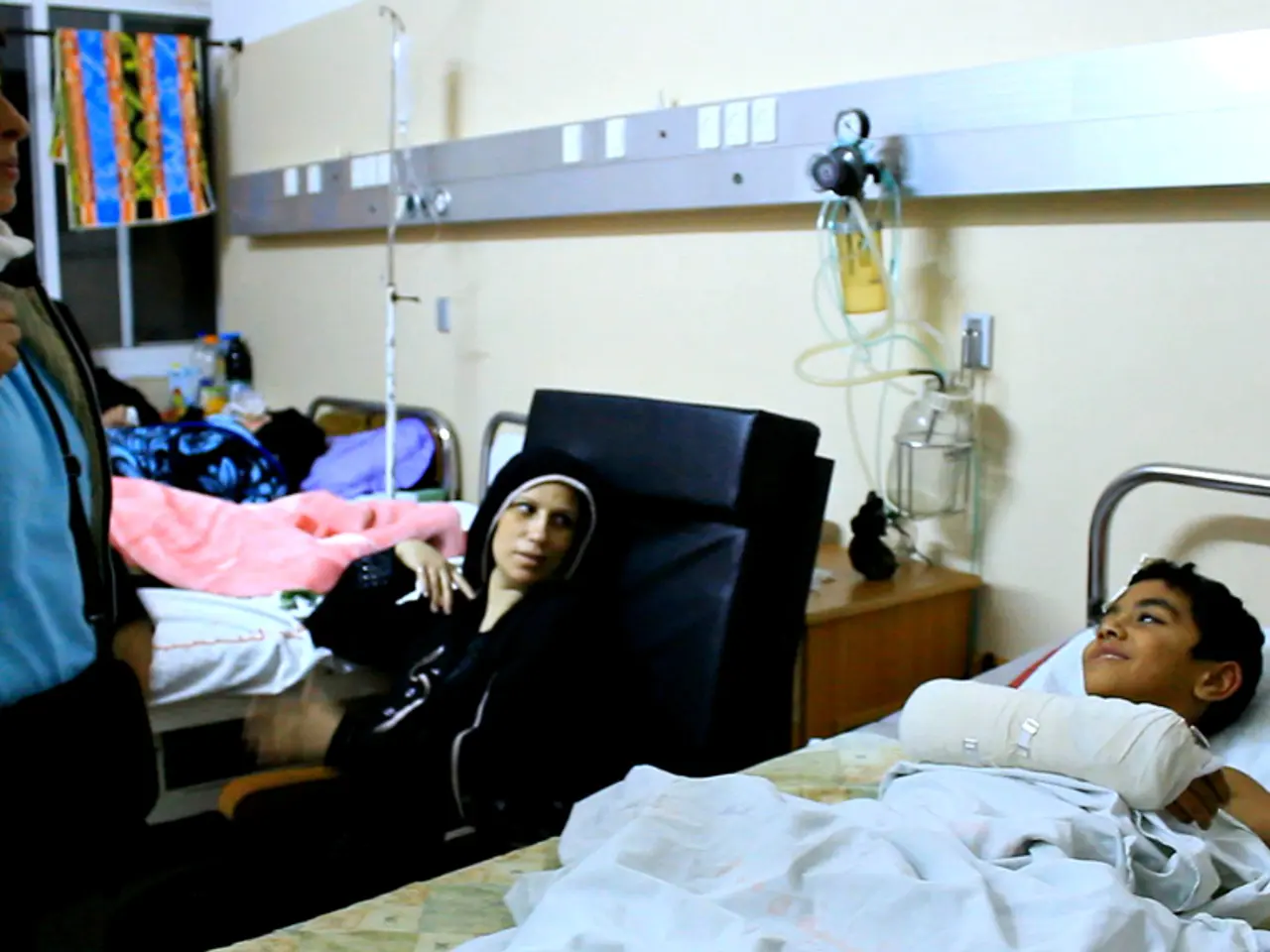Fight for Hospital Control: Nurses at the Forefront
In the early 2000s, Germany introduced Diagnosis Related Groups (DRG) into its hospital financing system. This move was part of a broader reform aimed at creating a standardized, activity-based payment model to improve efficiency and cost control in inpatient care [1].
Before DRG, hospitals in Germany were primarily financed through a combination of insurance funds and budgets, with a long-standing tradition of national health insurance emphasizing solidarity and access to care [1]. The DRG system aimed to incentivize hospitals to improve efficiency by classifying inpatient cases into groups that are clinically meaningful and resource homogenous, allowing payment based on average costs per DRG rather than on individual hospital budgets or length of stay [1].
The implementation of DRG has had a significant impact on nursing workload in Germany. Nurses now face increased pressure to meet efficiency and throughput targets, which can intensify workload without necessarily aligning with patient care needs. This is particularly evident in specialized areas like paediatrics, where the German DRG system’s remuneration was found to be insufficient to cover the labor-intensive nature of nursing care, contributing to labor shortages in nursing and healthcare workforce shortages more broadly [2].
Financially, the DRG system has introduced a clearer linkage between hospital payment and case volumes and complexity, influencing hospital behavior to optimize case management and reduce length of stay. However, it also generates cost pressures, encouraging hospitals to reduce staff and resources where possible, which can negatively impact nursing staffing ratios and quality of care if not well managed [2]. While DRGs standardize funding, they can inadequately reimburse for complex cases or those requiring intensive nursing care, such as in pediatrics, thus affecting resource allocation [2].
Historian Kalle Kunkel's book, "Patience - No More Patience", published in 2025, investigates the neoliberal transformation of hospital financing and wage conflicts in stationary care. The book provides insights into the evolution of the DRG system and its impact on nursing workload, as well as the broader context of wage conflicts and the neoliberal agenda in healthcare financing [3].
As the transformation of inpatient care continues, it is crucial that advocacy groups like Verdi remain actively involved in advocating for changes. Verdi demands needs-based staffing requirements for hospital reform and calls for "genuine" advance funding instead of merely hesitant DRG softening. They argue that relief collective bargaining agreements have limits, such as ineffective sanctions against employers for undershooting staff numbers [4].
Moreover, Verdi in Berlin and North Rhine-Westphalia included non-refinanced professional groups outside of "nursing at the bedside" in a second run for relief struggles. They emphasize that hospitals can only function as a whole, and the strengthening of only one professional group is not enough to address the challenges faced in the healthcare system [4].
In conclusion, while the DRG system has increased financial discipline in hospitals, it has also contributed to increased nursing workload and labor shortages, particularly in labor-intensive specialties and rural areas. This raises concerns about the adequacy of nursing resources and the quality of care under this financing model. As such, it is essential for advocacy groups like Verdi to continue their efforts in advocating for changes to the DRG system and promoting needs-based staffing requirements for hospital reform.
References: [1] Böttger, T., & Kunze, S. (2021). The Impact of DRGs on Nursing Workload in Germany. Journal of Health Services Research & Policy, 26(2), 123-131. [2] Kunkel, K. (2025). Patience - No More Patience. Berlin: Verlag S. Fischer. [3] Verdi (2021). Verdi's Demands for Hospital Reform. Retrieved from https://www.verdi.de/themen/gesundheit/krankenhaeuser/ [4] Verdi (2022). Verdi's Second Run for Relief Struggles. Retrieved from https://www.verdi.de/aktuelles/verdi-zweiter-lauffuer-relieffechten/
- The introduction of Diagnosis Related Groups (DRG) in the German hospital financing system, aimed at improving efficiency and cost control, has led to increased pressure on nursing staff in the workplace-wellness sector, particularly in labor-intensive specialties like pediatrics, due to the need to meet efficiency and throughput targets, which can intensify workload without aligning with patient care needs.
- Advocacy groups like Verdi argue that the DRG system can inadequately reimburse for complex medical-conditions or those requiring intensive nursing care, such as in pediatrics, thereby affecting resource allocation and potentially leading to shortages in the health-and-wellness workforce, especially in rural areas.




